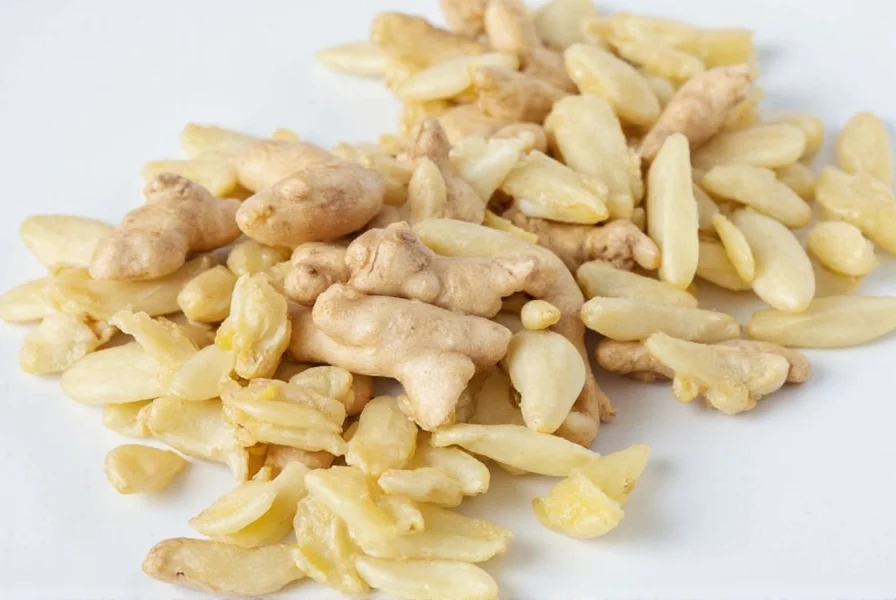Many dog owners wonder whether this common kitchen spice can benefit their canine companions. As interest in natural remedies for pets grows, ginger has gained attention for its potential health properties. This comprehensive guide examines the scientific evidence behind ginger use for dogs, proper administration methods, and important safety considerations every pet owner should know.
Understanding Ginger's Potential Benefits for Dogs
Research suggests ginger may offer several health benefits for dogs when administered properly. Studies published in the Journal of Veterinary Pharmacology and Therapeutics indicate ginger contains bioactive compounds like gingerols and shogaols that possess anti-inflammatory and antioxidant properties.
One of the most well-documented uses of ginger for dogs relates to digestive health. A 2019 study in the Journal of Animal Physiology and Animal Nutrition found that ginger supplementation helped reduce nausea and improve gastrointestinal motility in dogs. This makes ginger particularly valuable for dogs experiencing motion sickness during car rides or those with occasional digestive upset.
Dog owners seeking natural approaches for joint health may find ginger beneficial. The anti-inflammatory compounds in ginger may help reduce discomfort associated with age-related joint issues. While not a replacement for veterinary-prescribed treatments, ginger can potentially complement conventional approaches for dogs with arthritis.

Safety Considerations and Potential Side Effects
While ginger is generally safe for dogs, certain precautions are essential. Excessive ginger consumption can lead to digestive upset, including diarrhea or heartburn. The maximum safe daily amount for most adult dogs is approximately 1 teaspoon of freshly grated ginger or 1/4 teaspoon of ginger powder per 10 pounds of body weight.
Dogs with specific health conditions should avoid ginger entirely. This includes dogs with bleeding disorders, as ginger may increase bleeding risk due to its blood-thinning properties. Dogs scheduled for surgery should stop ginger supplementation at least one week beforehand. Pregnant or nursing dogs should not consume ginger without veterinary approval.
Watch for these potential side effects when introducing ginger to your dog's diet:
| Side Effect | Severity Level | Recommended Action |
|---|---|---|
| Mild digestive upset | Low | Reduce dosage or discontinue for 24 hours |
| Excessive drooling | Moderate | Discontinue use and consult veterinarian |
| Difficulty breathing | High | Seek immediate veterinary attention |
| Swelling of face or paws | High | Seek immediate veterinary attention |
Proper Administration Methods for Dogs
When giving ginger to dogs, preparation method matters. Fresh ginger root provides the most natural form. Peel a small piece (about 1/2 inch for medium dogs), grate it finely, and mix with your dog's food. For picky eaters, consider these administration techniques:
- Mix freshly grated ginger with plain yogurt or pumpkin puree
- Hide ginger in a small piece of cheese or peanut butter (xylitol-free)
- Make ginger-infused broth by steeping grated ginger in warm water, then cooling before adding to food
- Use commercially prepared ginger supplements specifically formulated for dogs
For dogs experiencing motion sickness, administer ginger 30-60 minutes before travel. The anti-nausea effects typically last 4-6 hours. When using ginger for joint support, consistent daily administration yields better results than occasional use.

When to Consult Your Veterinarian
Before introducing ginger or any new supplement to your dog's diet, consult your veterinarian. This is especially important if your dog has pre-existing health conditions or takes medications. Ginger may interact with certain medications, including:
- Blood thinners (increased bleeding risk)
- Diabetes medications (may affect blood sugar levels)
- Heart medications (potential interaction with blood pressure)
Your veterinarian can help determine if ginger is appropriate for your dog's specific health needs and recommend the proper dosage based on your dog's size, age, and health status. They may also suggest alternatives if ginger isn't suitable for your particular dog.
Practical Applications for Common Canine Concerns
Dog owners have reported success using ginger for various common issues. For dogs experiencing car sickness, a small amount of ginger before travel may reduce nausea. The recommended dosage for motion sickness is 1/4 to 1/2 teaspoon of fresh ginger for medium-sized dogs, administered 30 minutes before travel.
For dogs with occasional digestive upset, ginger's carminative properties may help soothe the gastrointestinal tract. However, if your dog experiences persistent vomiting or diarrhea, seek veterinary care rather than relying solely on ginger.
While some pet owners explore ginger for dogs with arthritis, it's important to note that ginger should complement—not replace—veterinary-recommended treatments. The anti-inflammatory effects may provide additional comfort when used alongside conventional approaches.
Conclusion: Making Informed Decisions About Ginger for Dogs
Ginger can be a safe and potentially beneficial addition to your dog's wellness routine when used appropriately. The key is moderation, proper dosing, and understanding your dog's individual health needs. Always start with small amounts to assess tolerance, and discontinue use if any adverse reactions occur.
Remember that while natural remedies like ginger have their place, they shouldn't replace professional veterinary care for serious health conditions. The most responsible approach combines evidence-based natural options with conventional veterinary medicine under professional guidance.
Can ginger help with my dog's motion sickness during car rides?
Yes, ginger may help reduce motion sickness in dogs. Administer 1/4 to 1/2 teaspoon of fresh grated ginger or 1/8 to 1/4 teaspoon of ginger powder 30-60 minutes before travel for medium-sized dogs. Research suggests ginger works by affecting the gastrointestinal tract and central nervous system pathways involved in nausea. However, consult your veterinarian before using ginger for motion sickness, especially if your dog has underlying health conditions.
How much ginger can I safely give my dog?
The safe dosage of ginger for dogs is approximately 1 teaspoon of freshly grated ginger or 1/4 teaspoon of ginger powder per 10 pounds of body weight, maximum once daily. For example, a 30-pound dog could safely receive up to 1 teaspoon of fresh ginger or 1/4 teaspoon of powder daily. Always start with half this amount to assess tolerance, and never exceed these guidelines without veterinary approval.
Are there any dogs that should never have ginger?
Yes, certain dogs should avoid ginger completely. This includes puppies under 6 months, pregnant or nursing dogs, dogs with bleeding disorders, dogs on blood-thinning medications, and dogs scheduled for surgery within the next week. Dogs with gallbladder disease or those taking diabetes medications should only use ginger under veterinary supervision due to potential interactions.
What are the signs that my dog isn't tolerating ginger well?
Signs of poor ginger tolerance in dogs include excessive drooling, vomiting, diarrhea, loss of appetite, or unusual lethargy. More severe reactions might include difficulty breathing, facial swelling, or hives, which require immediate veterinary attention. If you notice mild digestive upset, discontinue ginger for 24 hours and reintroduce at half the previous dose. Always stop ginger use if adverse reactions persist.
Can I give my dog ginger snaps or ginger-flavored human foods?
No, you should not give dogs ginger snaps or human ginger-flavored foods. These products typically contain added sugar, artificial sweeteners (like xylitol, which is toxic to dogs), spices, or other ingredients unsafe for canine consumption. Always use plain, fresh ginger root or pure ginger powder specifically measured for dogs, never human food products containing ginger.











 浙公网安备
33010002000092号
浙公网安备
33010002000092号 浙B2-20120091-4
浙B2-20120091-4